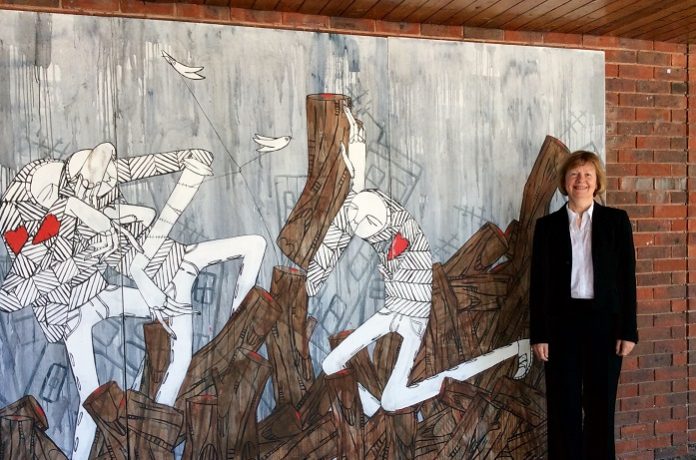Alison Brownjohn, head of procurement at the University for the Creative Arts, tells Rosie Niven about working at a small, specialist institution and her transition from the private sector to a university.
Can you tell us about your role?
I’m head of procurement at the University for the Creative Arts which I joined in January 2009.
My background has always been in procurement, but in the private sector, so it was quite a challenge getting up to speed with the way things are done in the higher education sector. I really don’t know how I’d have managed without the support of the SUPC whose staff never once laughed at the stupid questions I asked – at least not to my face!
We’re a small university and the procurement team consists of one full-time equivalent (two lovely job sharers) and myself, so purchasing is very much devolved to the staff. This sometimes creates its own challenges amongst a creative academic community.
The UCA has only been a university since 2005, following the merger of the Kent and Surrey Institutes of Art & Design. Luckily, at that time senior management had the foresight to engage a consultant who put in place a good foundation for the procurement process which we’ve been able to build on since.
How do you balance the ‘business as usual’ with the need to improve the way things are done?
Like most procurement teams we’re always busy but I can generally leave the more operational aspects to the procurement assistant so that I can concentrate on projects and tenders.
When I can find time between projects, I focus on the more strategic requirements of my role. As a team we believe in asking questions, challenging not only why a certain item has to be bought or why a particular supplier has to be used, but also our own processes to see how they can be improved and streamlined.
We like to make full use of technology. Procure to pay (P2P) was implemented about five years ago and since then we have added an e-marketplace which we are constantly working to extend with further suppliers on e-Invoicing and punchout to supplier catalogues.
UCA has scored well in the procurement maturity assessment – how has this initiative helped yours and similar institutions?
We are delighted with the outcome of the recent procurement maturity assessment. Meeting our aim of achieving the Planned level – the target for smaller universities – was a thrill in itself and to be the first of the smaller universities to reach this stage was an added surprise.
The maturity assessments have helped raise the profile of procurement internally and given the board of governors confidence that the procurement function is operating well.
A previous PMA Action Plan suggested some areas for savings and the resulting support from SUPC Procurement Shared Services enabled us to achieve three-year savings of nearly £1m in two commodity areas. I’ve heard similar stories from other institutions.
Is there still room for improvement? If so, where?
Of course, there’s always room for improvement, which is why the action plan is so useful. In our case, our score for corporate and social responsibility was slightly below our other scores. This is an area I’d been meaning to move forward for a while so the PMA was just the kick I needed to get me started on it.
Do specialist institutions face particular barriers to achieving efficiencies?
As a specialist institution, it can be difficult to find framework agreements for many of our course materials. Also, the creative aspect of our university means a high number of one-off suppliers is needed to maintain freshness and innovation. This, of course, makes consolidation of suppliers particularly difficult.
What do you like most about your role?
Our specialist creative arts focus means that a huge variety of goods and services is purchased, from fabric and mannequins for fashion, through precious metals for gold and silversmithing to 3D printers for architecture and high end workstations for computer animation arts.
I enjoy being involved in the diverse range of projects across the university and its four campuses: not only major construction projects and complex technical procurements but also the co-ordination of basic cross-campus services.
My role on the value for money group is also interesting as it covers all significant projects across the university, not just those involving the procurement of goods and services.
What do you like to do outside your role?
During my free time I’m trying to learn Portuguese, create patchwork, grow fruit and vegetables in our garden and manage our five acre piece of West Sussex woodland with my husband. After five years I’m a dab hand with a billhook but he hasn’t let me loose with a chainsaw yet!
Alison Brownjohn is head of procurement at the University for the Creative Arts





